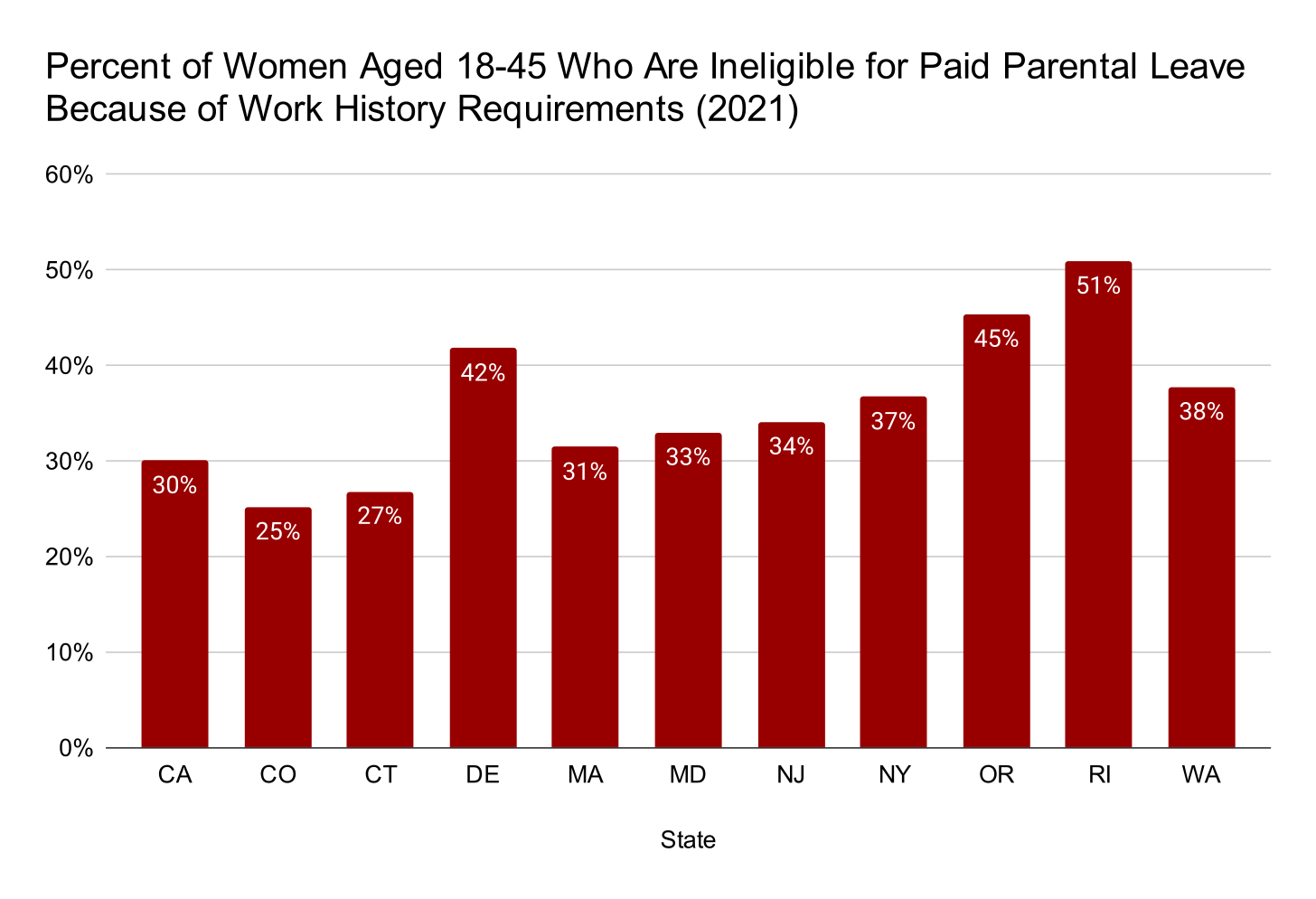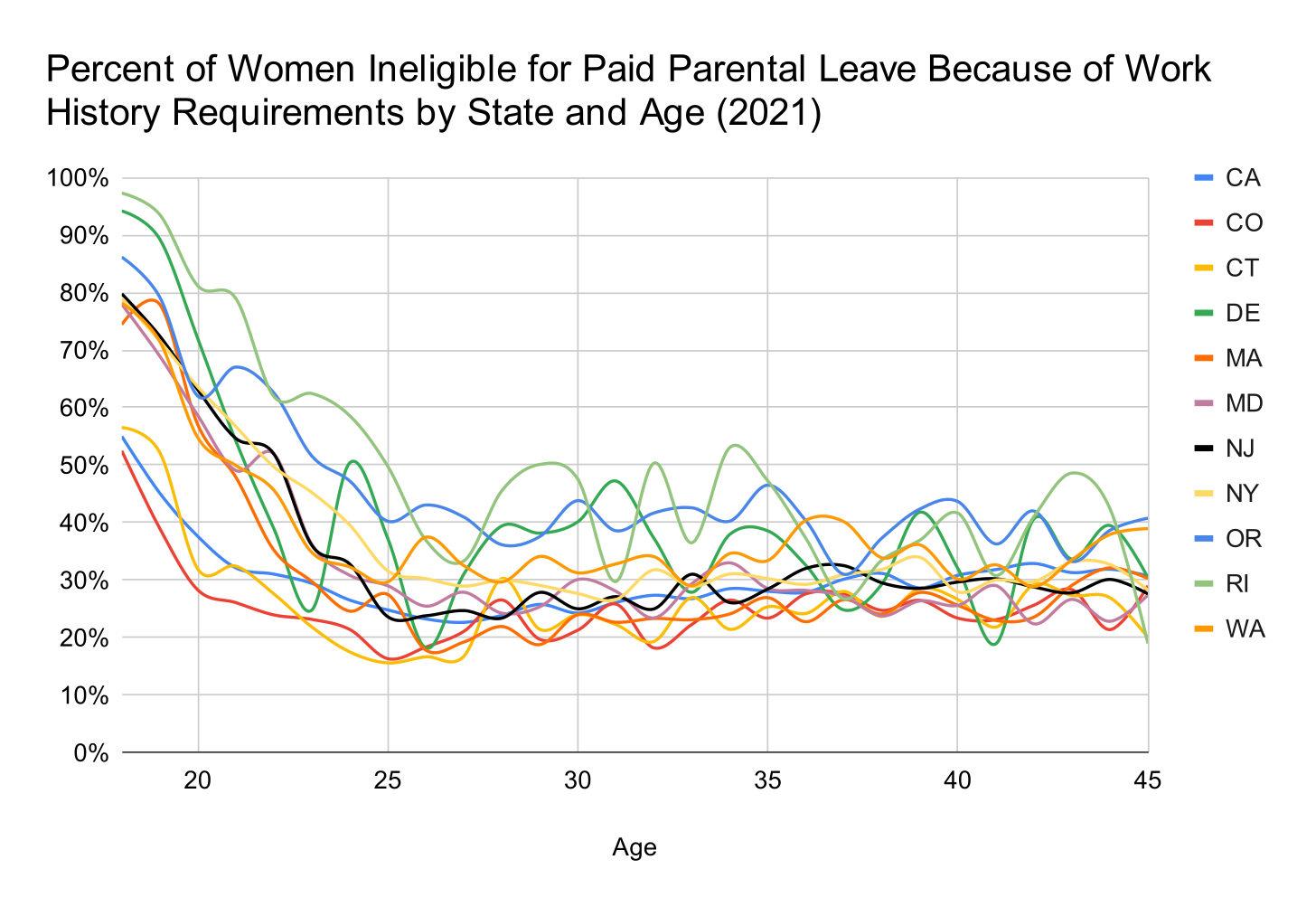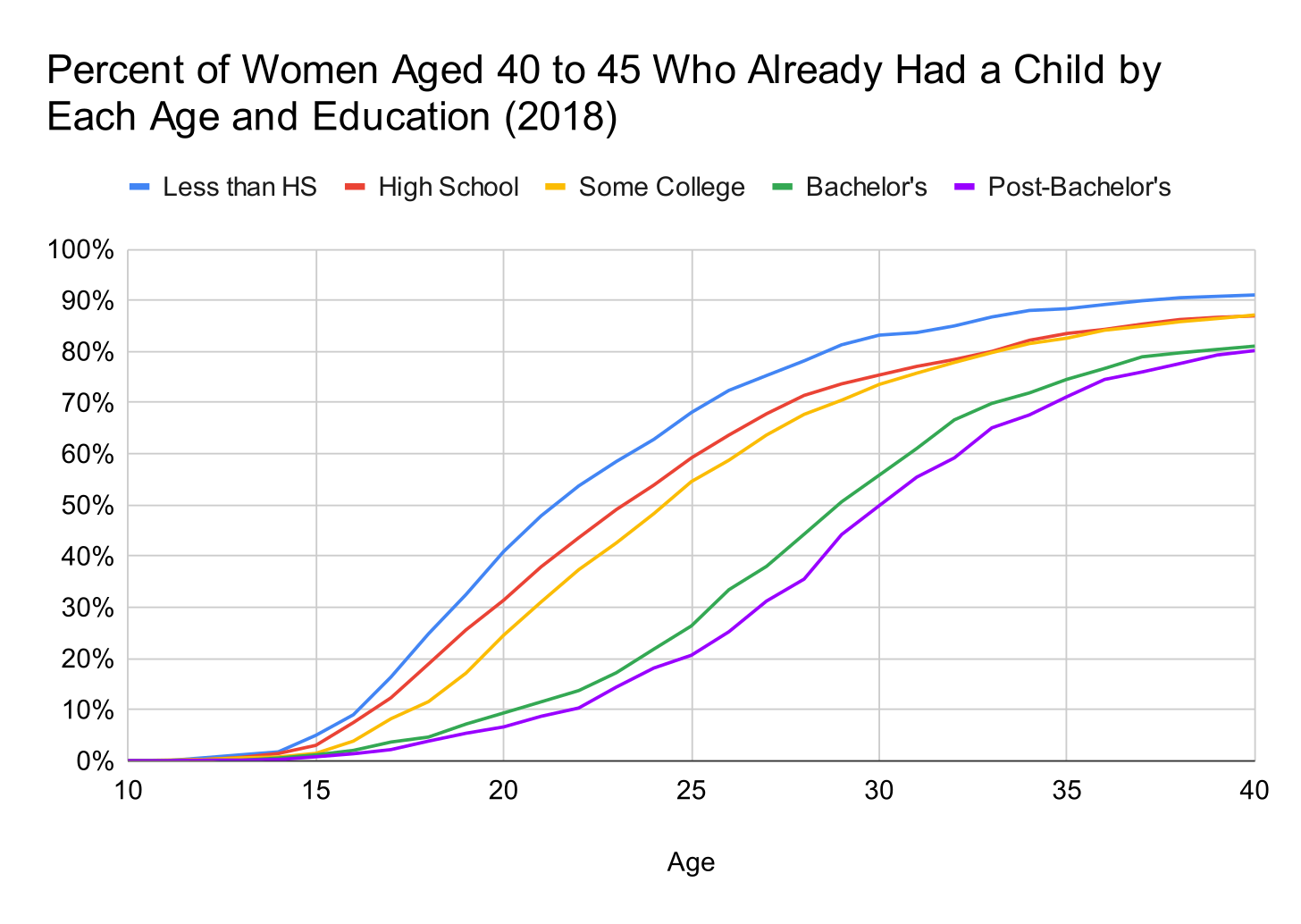All Twelve State Parental Leave Programs Are Awful
On average, work history requirements render 1 in 3 women ineligible for parental leave benefits.
CLICK HERE TO READ ON THE SITE.
Last week, I did a deep dive into Washington’s parental leave program and found that nearly 40 percent of Washingtonian women between the ages of 18 and 45 are ineligible for benefits because they fail to meet the program’s work history requirements. But Washington is not an outlier in this regard. All twelve state parental leave programs have work history requirements that exclude a huge percentage of women from benefits.
The table below contains a list of the work history requirements for each of the twelve states. States express work history requirements in terms of hours worked, days worked, weeks worked, and earnings, with some states using more than one of these measures.
[TABLE DOES NOT RENDER IN EMAIL. GO TO SITE TO SEE.]
No state provides universal parental leave in the sense that many European countries do where every new parent is eligible for some benefit from the program regardless of their work history.
Using the 2021 American Community Survey, I was able to determine what percent of women between the ages of 18 and 45 failed to meet these work history requirements in each state. In the average state, 36 percent of women in this age range did not meet the work history requirements of their state’s paid parental leave program. In the most extreme case of Rhode Island, a slight majority of women fail the state’s work history requirement.
Younger women have a weaker attachment and history in the workforce than older women and so parental leave eligibility is especially uncommon for women between the ages of 18 and 25.
Some women are rendered ineligible because they did not work at all in the prior year, either because they were in school, disabled, unemployed, or caregiving. But many other ineligible women did work, just not enough to meet their state’s work history requirements. In the latter case, these women actually contribute part of their paycheck into their state’s parental leave program, but then are denied benefits when they have children.
In both cases, the women screened out of eligibility tend to have less education and receive lower pay. Put differently, it’s the lower class that is disproportionately pushed out of these programs.
Indeed, it’s hard to look at the eligibility-by-age graph above and not wonder whether parental leave advocates have a certain vision of child-bearing that is heavily biased towards the work and fertility preferences of middle and upper class women.
As we can see in the Current Population Survey Fertility Supplement below, the vast majority of women have children at some point in their life. But the timing of those children differs dramatically. Over 60 percent of women with a high school degree or less have their first child at or before the age of 25. For women with a bachelor’s degree or more, the same number is less than 25 percent.
If your model for family formation is to get a four-year degree, become firmly rooted in a career, and have kids in your 30s, then the work history requirements of the twelve state parental leave programs work perfectly for you. If not, then you are often left out in the cold.
Of course, it’s not just work history requirements that render people ineligible for these programs. Many states also declare you ineligible if you are employed by a municipal government, the federal government, or a small employer. States also often create income-replacement formulas that provide so little benefit to low-earners that it would be practically impossible for them to live on.
It would be fairly easy as a policy matter to ensure that all parents are eligible for a decent parental leave benefit. All a state has to do is create a minimum benefit — e.g. one set equal to the minimum wage — that all parents are at least eligible for regardless of their work or earnings history. This kind of floor would make these programs truly universal.
If you aren’t already, please consider supporting our work by donating through ActBlue or Patreon.




